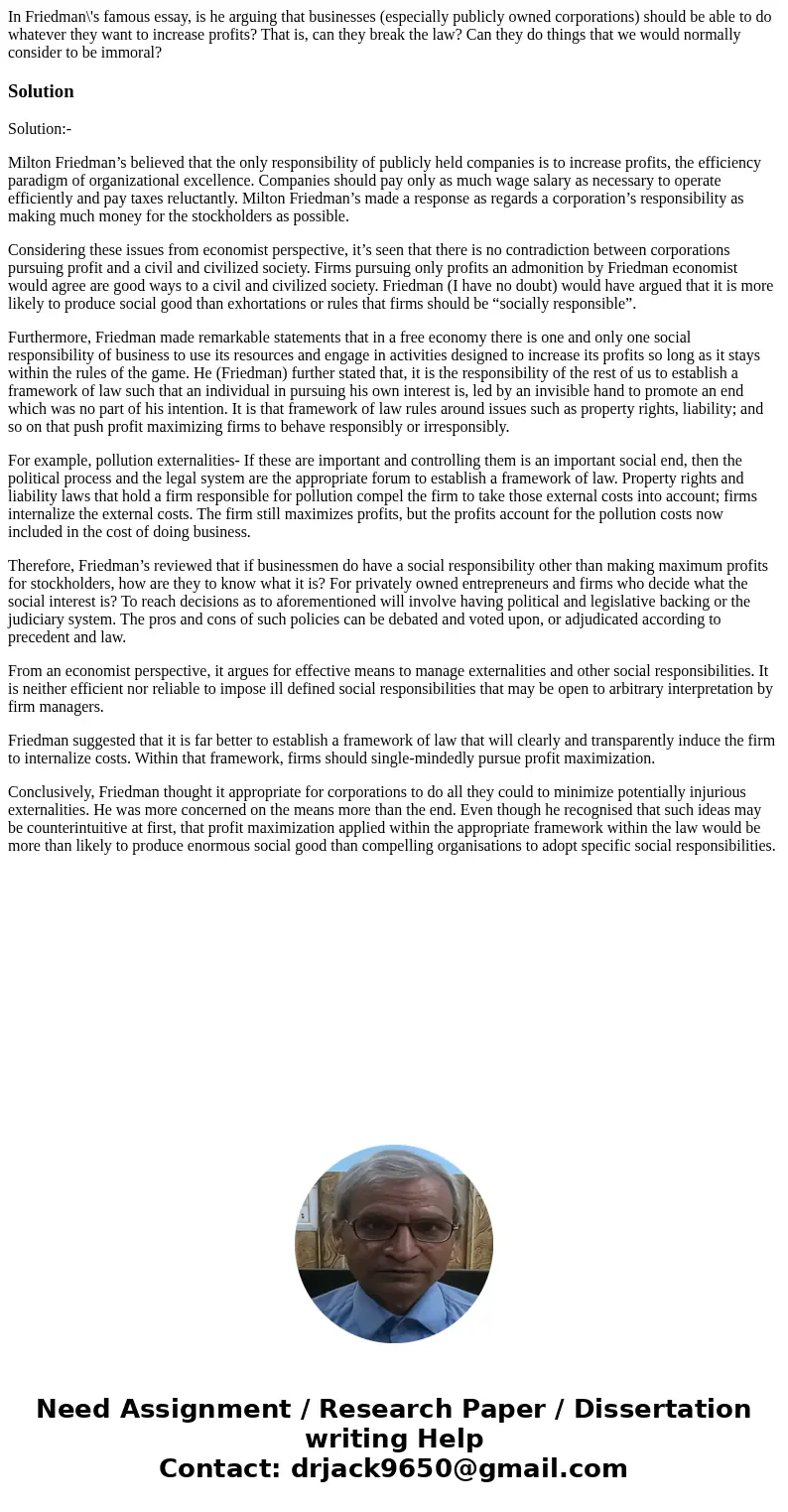In Friedmans famous essay is he arguing that businesses espe
In Friedman\'s famous essay, is he arguing that businesses (especially publicly owned corporations) should be able to do whatever they want to increase profits? That is, can they break the law? Can they do things that we would normally consider to be immoral?
Solution
Solution:-
Milton Friedman’s believed that the only responsibility of publicly held companies is to increase profits, the efficiency paradigm of organizational excellence. Companies should pay only as much wage salary as necessary to operate efficiently and pay taxes reluctantly. Milton Friedman’s made a response as regards a corporation’s responsibility as making much money for the stockholders as possible.
Considering these issues from economist perspective, it’s seen that there is no contradiction between corporations pursuing profit and a civil and civilized society. Firms pursuing only profits an admonition by Friedman economist would agree are good ways to a civil and civilized society. Friedman (I have no doubt) would have argued that it is more likely to produce social good than exhortations or rules that firms should be “socially responsible”.
Furthermore, Friedman made remarkable statements that in a free economy there is one and only one social responsibility of business to use its resources and engage in activities designed to increase its profits so long as it stays within the rules of the game. He (Friedman) further stated that, it is the responsibility of the rest of us to establish a framework of law such that an individual in pursuing his own interest is, led by an invisible hand to promote an end which was no part of his intention. It is that framework of law rules around issues such as property rights, liability; and so on that push profit maximizing firms to behave responsibly or irresponsibly.
For example, pollution externalities- If these are important and controlling them is an important social end, then the political process and the legal system are the appropriate forum to establish a framework of law. Property rights and liability laws that hold a firm responsible for pollution compel the firm to take those external costs into account; firms internalize the external costs. The firm still maximizes profits, but the profits account for the pollution costs now included in the cost of doing business.
Therefore, Friedman’s reviewed that if businessmen do have a social responsibility other than making maximum profits for stockholders, how are they to know what it is? For privately owned entrepreneurs and firms who decide what the social interest is? To reach decisions as to aforementioned will involve having political and legislative backing or the judiciary system. The pros and cons of such policies can be debated and voted upon, or adjudicated according to precedent and law.
From an economist perspective, it argues for effective means to manage externalities and other social responsibilities. It is neither efficient nor reliable to impose ill defined social responsibilities that may be open to arbitrary interpretation by firm managers.
Friedman suggested that it is far better to establish a framework of law that will clearly and transparently induce the firm to internalize costs. Within that framework, firms should single-mindedly pursue profit maximization.
Conclusively, Friedman thought it appropriate for corporations to do all they could to minimize potentially injurious externalities. He was more concerned on the means more than the end. Even though he recognised that such ideas may be counterintuitive at first, that profit maximization applied within the appropriate framework within the law would be more than likely to produce enormous social good than compelling organisations to adopt specific social responsibilities.

 Homework Sourse
Homework Sourse